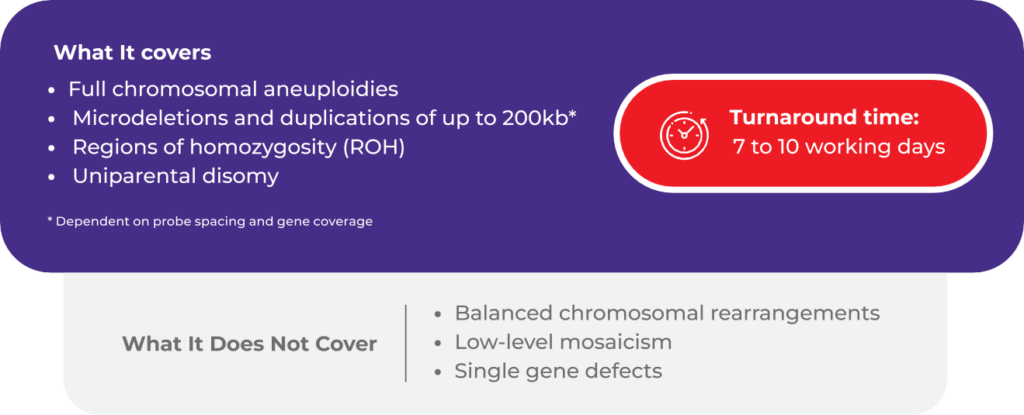CytoONE
What To Expect From Cyto-one

How Does Cyto-one Support Your Descision Making
- Initiating quick intervention or response in at-risk mothers including pregnancy termination
- Providing the best assistance before childbirth or the right therapeutic approach after the birth of the baby
| Cyto-ONE | Other Microarrays | |
| SNP marker | Approx. 1,000,000 markers | 7,50,000 markers |
| probe spacing (kb)-Mean/Median | 5 kb | ~50 kb |
| Backbone | ~15-20 kb | 200 kb |
| Copy Neutral Loss Of Heterozygosity (Cnloh) | < 3 MB | 5 MB |
| Failure Rate | < 2% | Upto 5% |
When To Recommended Cyto-ONE?
It can help get early answers during both prenatal and postnatal periods
- Recurrent pregnancy loss
- IUD (Intrauterine Death) And IUGR (Intrauterine Growth Restriction)
- Presence of fetal soft markers
- Add-on test fir fetal chromosomal evaluation
- Presence of congenital anomalies in babies
- Evaluation of autism, intellectual disability and dysmorphism in babies/children
Why clinicians and parents should consider Cyto-one
- Higher detection rates and lower failure rates
- Detection of ROH (regions of homozygosity)
- Prediction of the presence of an underlying recessive disorder
- Fast turnaround time for timely management
- Pre- and post-test counselling coupled with valuable insights from a certified clinical genetics
Types of Cyto-ONE
- Cyto-ONE High resolution - Prenatal/POC/Postnatal
- Cyto-ONE Low resolution - Prenatal/POC
